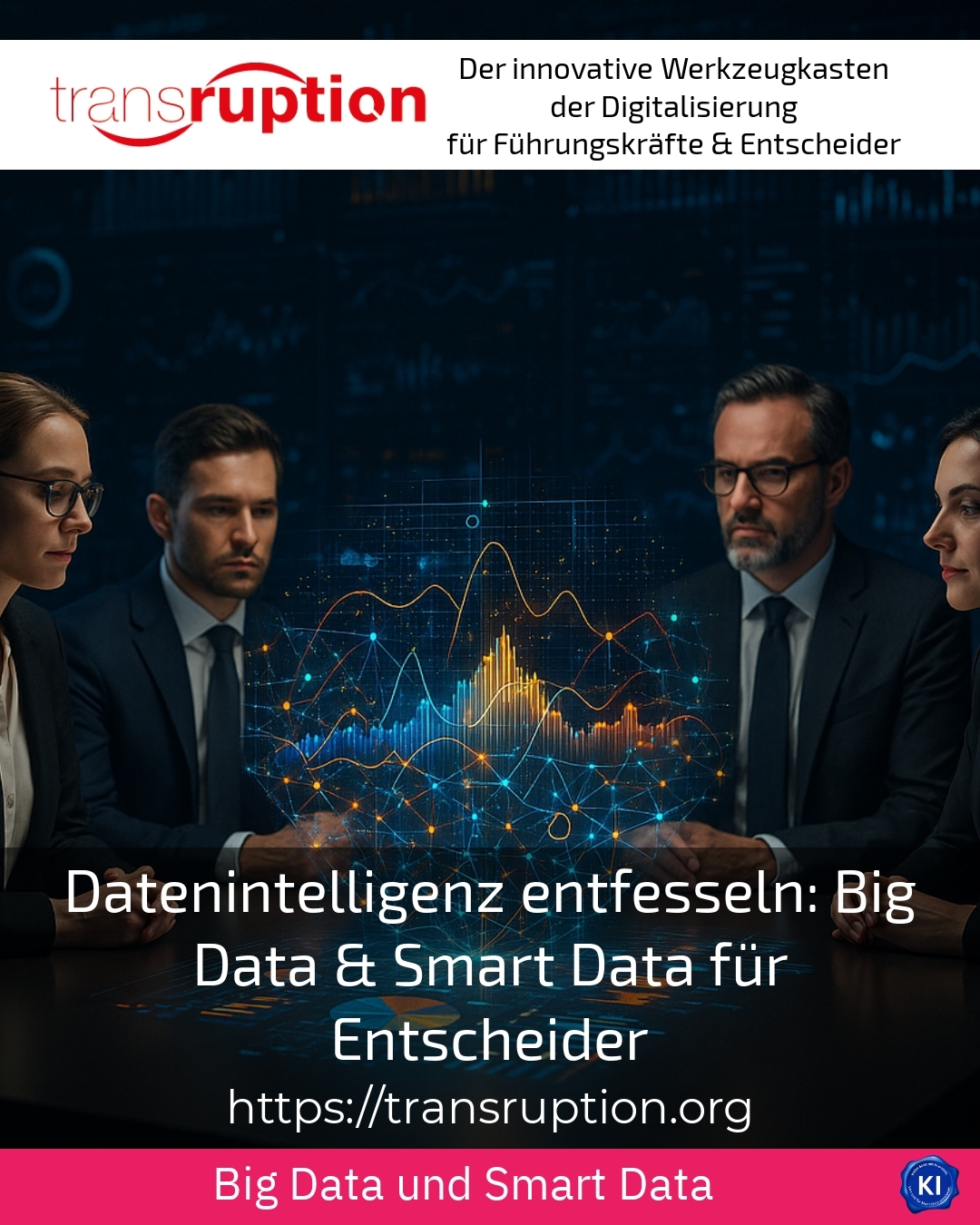In the age of digitalisation, every company faces the challenge of extracting real added value from huge amounts of data. Data intelligence is the key to generating meaningful and usable insights from big data. Decision-makers benefit from targeted data analysis, as it enables precise decisions and supports sustainable corporate development. Data intelligence combines technology, processes and human expertise to turn data into knowledge.
Big data and smart data: what's the difference?
Big data describes the huge amounts of data that come from a wide variety of sources. This includes transaction data, sensor data and information from social media. This data is often unstructured and difficult to process. Smart data, on the other hand, are specifically prepared data sets that provide directly usable insights. They are created through intelligent filtering, analysis and contextualisation.
An example from the automotive industry: sensors provide millions of data points per vehicle. Using data intelligence, only the relevant values are extracted in order to predict maintenance requirements. This creates smart data that provides concrete support for companies.
Patient data and laboratory results are combined in the healthcare sector. Data intelligence helps to develop individual therapy approaches and optimise the course of treatment. Customer data is also analysed in retail in order to plan targeted marketing measures.
Data intelligence in practice: fields of application and examples
Personalised marketing strategies
Companies use data intelligence to recognise customer preferences. This allows marketing campaigns to be customised. An online shop analyses purchasing behaviour and recommends suitable products. This increases conversion rates and customer satisfaction.
Another example: an insurance company segments its target groups and develops customised offers. The data analysis shows which products are particularly popular and where improvements are needed.
Customer data is also analysed in the B2B sector in order to strengthen business relationships. Data intelligence helps to recognise individual needs and offer solutions.
Optimisation of business processes
Data intelligence supports the optimisation of internal processes. A logistics company analyses routes and delivery times in order to improve the flow of goods. This reduces costs and increases customer satisfaction.
Another example: A production plant monitors machines in real time. Data intelligence enables maintenance requirements to be identified at an early stage and downtimes to be minimised.
Processes are also being optimised in the financial sector. Transaction data is analysed in order to identify risks and prevent fraud.
Predicting trends and behaviours
Data intelligence enables the prediction of market developments. A retailer analyses sales data to identify future trends. This allows the product range to be adapted in a targeted manner.
Another example: An energy supplier forecasts consumption and adjusts generation accordingly. This avoids bottlenecks and increases security of supply.
Trends are also recognised in the healthcare sector. Data intelligence helps to identify disease outbreaks at an early stage and take action.
Data intelligence as a strategic success factor
Today, data intelligence is a decisive competitive advantage. Companies that utilise data in a targeted manner are faster and more flexible. They recognise opportunities and risks at an early stage and act proactively.
An example from industry: a machine manufacturer uses data intelligence to realise predictive maintenance. This prevents breakdowns and increases product quality.
In retail, customer data is analysed in order to reduce returns. Data intelligence shows which products are frequently returned and why. This allows improvements to be made.
Hospitals also benefit from data intelligence in the healthcare sector. Patient data is analysed in order to optimise treatment plans and reduce costs.
My analysis
Data intelligence is more than just a technology. It is a strategic mindset that enables companies to generate knowledge from data. Decision-makers benefit from targeted data analysis because it enables precise decisions and supports sustainable corporate development. Data intelligence combines technology, processes and human expertise to create added value from data.
However, the implementation of data intelligence requires not only technical solutions, but also a clear strategy and the willingness to change processes. Companies that follow this path are better positioned and can hold their own on the market in the long term.
Further links from the text above:
Big data vs. smart data: is more always better?
Data intelligence: big data and smart data for decision-makers
Big data: the utilisation of large amounts of data
Smart data: definition, application and difference to big data
For more information and if you have any questions, please contact Contact us or read more blog posts on the topic TRANSRUPTION here.















